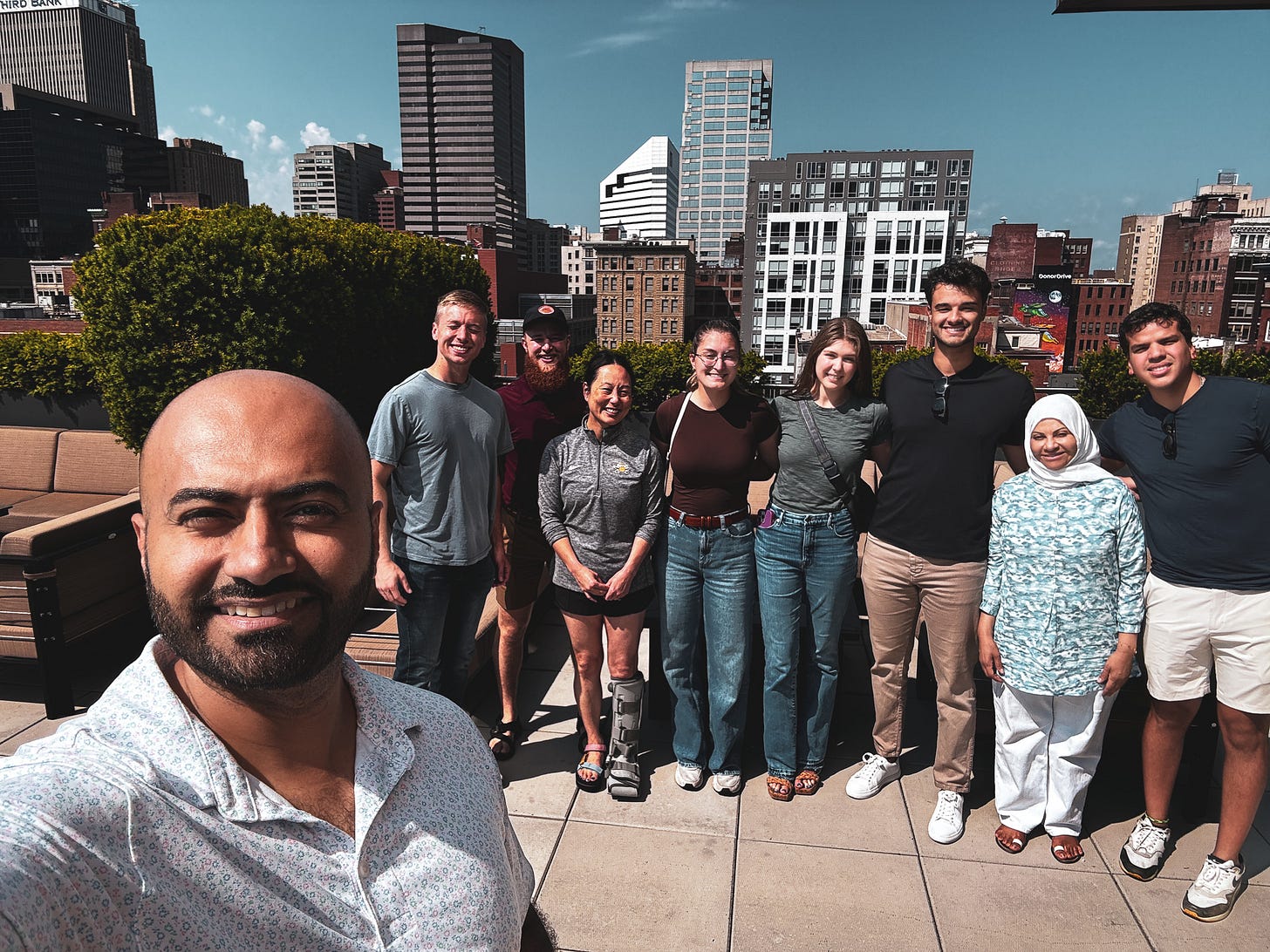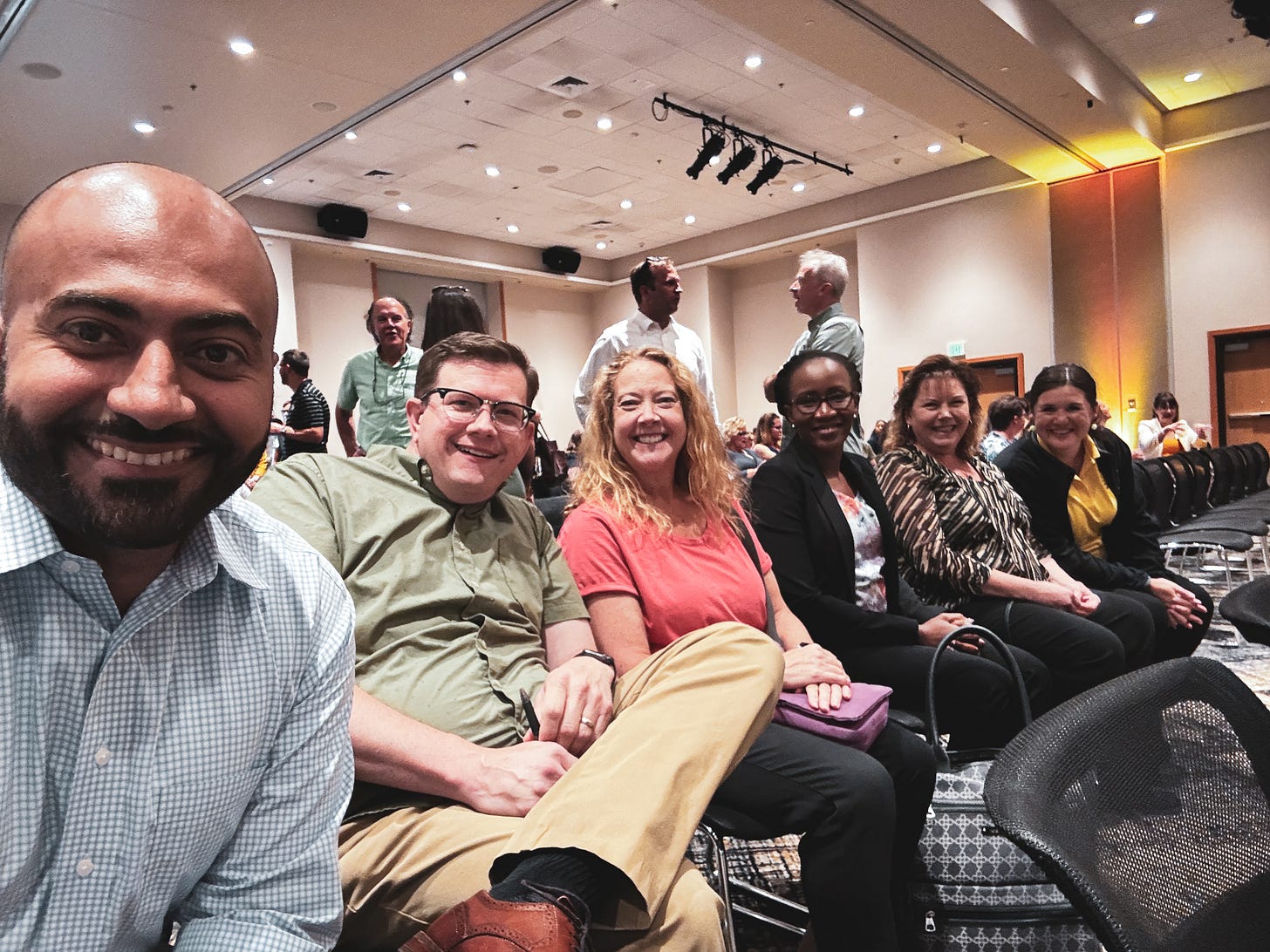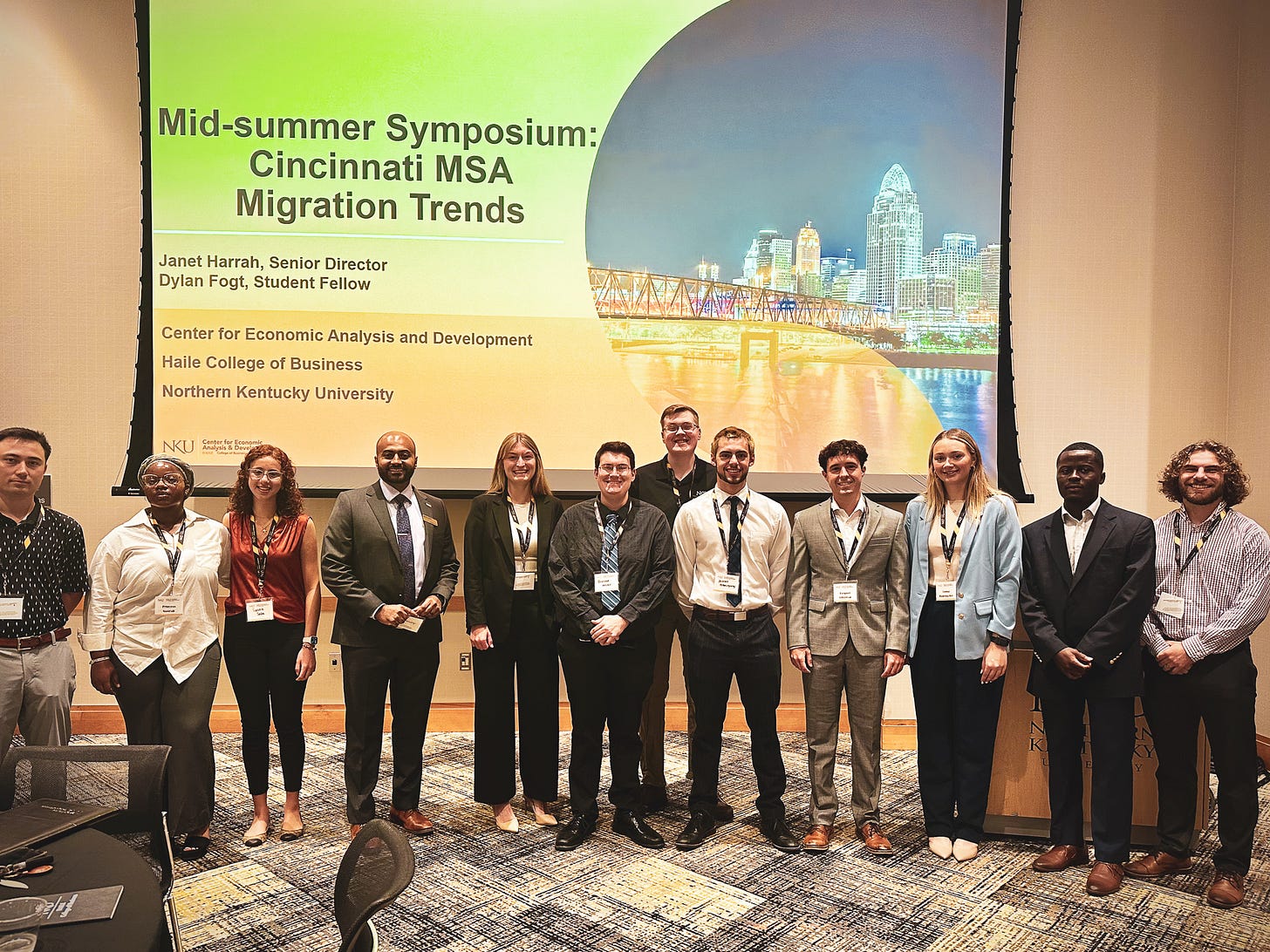I've been reading and watching a lot of Scott Galloway's content lately. While I don't agree with everything he says, I'm impressed by his ability to market his ideas and build thought leadership. He's exceptionally skilled at this; we could all learn from him.
I am writing to let you in on some conversations I’ve had during discussion hours and to invite you to participate in a new program I am launching with Brooklyn Stephens and Becca Wilson.
The Galloway Principle
Scott Galloway, a prominent marketing professor and entrepreneur, recently stated:
"Anyone who tells you to find your passion or follow your passion is already rich... You want to be thoughtful about doing something [where] you can be in the top ten or top one percent... Fulfillment comes from mastery."
While this perspective is compelling, it raises two critical questions:
How do you identify your strengths?
How do you ascend to the top 10% of your field?
Identifying Your Strengths
The most reliable indicator of your strengths is often external validation. Pay attention to:
Tasks others consistently ask you to perform
Areas where you receive unsolicited praise
Responsibilities you're given, even without prior experience
Strategies for Self-Discovery
Self-discovery is an important part of professional and personal growth. Participants in my research lab will tell you that reflection and curiosity are tasks and attributes that we invest in heavily.
Embrace new challenges: Step outside your comfort zone to uncover hidden talents.
Seek feedback: Actively request input from colleagues, mentors, and friends.
Analyze patterns: Reflect on your experiences to identify recurring themes of success.
My Personal Experience
Reflecting on my journey of strength discovery, I find it eye-opening. Here are things I discovered by responding to what people ask of me:
Mentorship: Students and peers sought my guidance beyond my role as an economics professor.
Change Management: I was frequently tapped to lead organizational transitions or new initiatives.
Community Building: My ability to unite diverse groups became apparent through others' requests. Whether it is being the Executive Director of the
or Cofounding .Leadership: I was offered an administrative role when I considered myself primarily faculty. My boss saw in me the potential, and I trusted them.
Digital Content Creation: Adapting to market shifts uncovered my aptitude for engaging social media content and my love for sharing ideas creatively.
Finding the Top of Your Field
While aiming for the pinnacle is admirable, focus on establishing robust processes. The process leads to the outcome.
Invest Time: There's no substitute for dedicated practice and experience. No shortcuts are allowed.
Cultivate Your Network: Surround yourself with ambitious, like-minded individuals.
Immerse Yourself: Devour industry literature, attend seminars, and engage with thought leaders. Consume before you produce!
Build in Public: Share your journey, insights, and learnings to establish credibility and attract opportunities.
Reframing Passion
Scott Galloway's quote downplays passion and its impact on personal growth. I think passion is a great asset that can be leveraged for opportunities. But what is passion, really? I describe passion as voluntarily spending time learning about and trying to master a subject. Your passions will change throughout your life, and they should. The skills you learn while pursuing one passion are often transferable to others.
Remember, passion isn't just about what you enjoy—it's about what drives you to improve and grow continuously. As you identify your strengths and work towards mastery, you may find that your passions evolve alongside your expertise.
The Takeaways
Identify your strengths through external feedback and self-reflection.
Focus on consistent effort and skill development rather than fixating on being the best.
Allow your passions to evolve as you grow and discover new strengths.
Build a supportive network and share your journey publicly.
Remember that fulfillment comes from pursuing mastery, not just achieving a specific rank.
Aligning your natural abilities with deliberate practice and an evolving sense of passion will help you excel and find fulfillment. Don’t chase the outcome; enjoy the journey.
How’s your journey to the top of your field going?
-Dr. A
Join us for a new program.
Open to all students.
About the Program
This hands-on program is designed to help you master the art of turning data into clear, compelling stories. You'll learn how to present data in ways that are easy to understand, choose the right visualizations, and create narratives that make an impact.
Whether you're studying business, marketing, finance, or any other field, this series will give you the skills to communicate data effectively and influence decisions in your future career.
Why should you sign up?
We have designed this series for YOU. We were once in your shoes—unsure about what the future holds but knowing that NOW is the time to build skills that will set you apart as a student and future professional. This program is your next step! Whether you're interested in business, marketing, finance, or data analysis, this series will help you master the art of communicating data effectively. It's perfect for students eager to pursue data-driven careers or those wanting to take their presentation skills to the next level.
Date: October 18th
Format: In-person, NKU Haile College of Business BC 251, 9:00 am - 2:00 pm, Lunch Provided
Cost: NKU Student pricing - $20; Non-NKU Student pricing $50
Agenda
9:00 am: Foundations of Effective Data Communication
Description: Have you ever been in a presentation or class and struggled to grasp the objective, takeaway, or main idea? We’ve been there too. That’s why we begin with the basics. In this session, we introduce the fundamental principles of data communication, focusing on translating complex information into clear, actionable insights.
10:00 am: Choosing and Creating Effective Data Visualizations
Description: Creating impactful data visualizations starts with knowing which type of visual to use. This choice can depend on various factors, including your audience, data structure, and more. In this session, we’ll break down how to select the most effective visuals to convey your information with clarity and precision. Learn to master the art of choosing the right visual elements to ensure your message is both compelling and easy to understand.
11:00 am: LUNCH PROVIDED
12:00pm: Advanced Techniques and Putting It All Together
Description: In this session, we’ll dive into advanced storytelling techniques. This is where the real magic happens. We’ll guide you through practical exercises that bring the concepts to life, helping you to solidify your understanding. By the end, you’ll walk away with not just theoretical knowledge but also actionable takeaways that you can immediately apply to your work inside and outside of the classroom.
1:00 pm: Mastering the Art of Data Presentation
Description: Unlock the secrets to transforming nervous energy before a big presentation or meeting into powerful storytelling tactics. In this session, we'll focus on the essential soft skills—what we like to call the "finishing touches"—that make all the difference in effectively presenting data and managing a room. Learn how to ensure your insights are not only understood but resonate with your audience.








Good advice. I'd add that one way to get into the top 10% is by combining skills or jobs. So I might not be a top 10% economics educator, or top 10% writer, or a top 10% parenting advice-giver, but I might be a top 10% economics parenting advice writer!
Very good thoughts on his videos and writings. Many young people need to listen to this. I was told early on by someone that I would be a great teacher and thought nothing of it. It took decades for me to realize this was not just a passing comment, but an identification of a talent. In leadership theory, there is a split on the traits (talents) and skills approaches because one believes people are born with traits (leadership traits) and the other believes people can be trained to lead. They are both right, but skill development will not change someone who is not a leader to US Grant. Skills will, however, refine the traits of a natural leader. Applying this to younger people - do not take these off-the-cuff comments lightly, listen for them, and develop a refining plan to enhance your unique talents. If you do, you may waste decades chasing things that will never materialize.